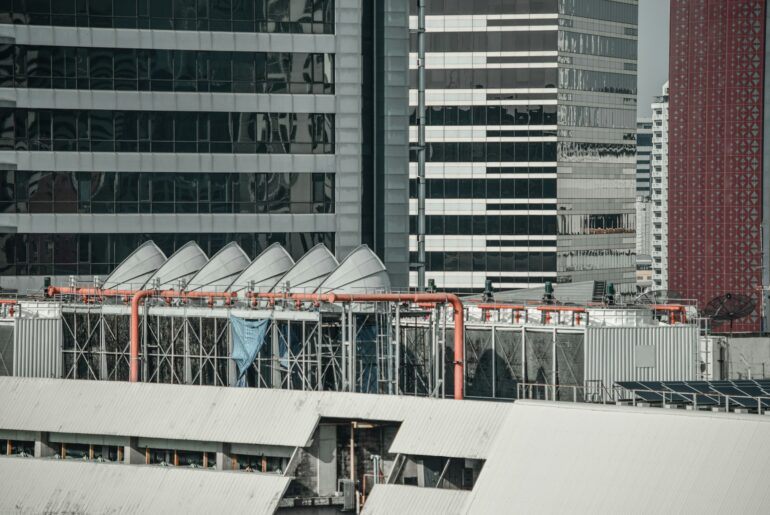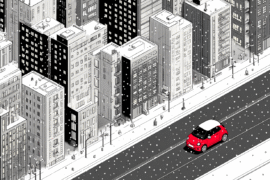This article may contain references to products or services from one or more of our advertisers or partners. We may receive compensation when you click on links to those products or services. Nonetheless, our opinions are our own.
The information presented in this article is accurate to the best of our knowledge at the time of publication. However, information is subject to change, and no guarantees are made about the continued accuracy or completeness of this content after its publication date.
A lot of homeowners are still using older heating and cooling systems. These systems may not be as energy-efficient as newer ones, but they still work if they are kept up properly. There are easy and effective ways to improve the performance of your old HVAC system and lower your energy bills without having to buy a new one. You can keep your home comfortable and make your system last longer without spending a lot of money if you put in some time and effort. We’ll talk about how to get the most out of your old HVAC system. We’ll show you how a few smart changes can make a big difference in how well your system works and how much energy it uses, from routine maintenance to planned upgrades.
- Learning About Your Old HVAC System
- Optimize Your Thermostat Settings for Better Efficiency
- Keep the Airflow Strong
- Upgrade Components When Needed
- Seasonal Adjustments for Peak Performance
- Harness the Power of Fans to Aid Your HVAC
- Master Zone Heating and Cooling
- Enhancing Your Comfort with Landscaping
- Maintaining Indoor Air Quality
- Conclusion
- Frequently Asked Questions
- What are some simple maintenance tips for an old HVAC system?
- How can sealing ducts improve HVAC performance?
- What role does thermostat management play in system efficiency?
- Are there any upgrades worth considering for older HVAC systems?
- How important is insulation for HVAC performance?
- How can I address airflow issues in my home?
- Is there anything I can do to improve the efficiency of my HVAC system without a large investment?
- Recommended Reads
Learning About Your Old HVAC System
It’s important to know how your old HVAC system works before you try to make it work better. Older systems work in the same way as newer ones: they use refrigerants, compressors, and fans to move air around and keep temperatures stable. But as time goes on, parts naturally wear out, which makes the system work harder and less efficiently. This not only makes things less comfortable, but it also raises energy costs. You need to take care of and pay attention to your system on a regular basis to get the most out of it. Here’s a list of things you can do to keep your HVAC system running well:
Tips for Optimizing Your Old HVAC System
1. Regular Maintenance
One of the most important things you can do for your HVAC system is schedule regular maintenance. Much like you wouldn’t skip oil changes for your car, your HVAC system needs regular check-ups. Having a professional technician inspect and tune up your system annually ensures everything is running smoothly and efficiently.
- Why it matters: Routine maintenance helps detect minor issues before they turn into expensive repairs.
- What’s checked: Technicians will inspect for leaks, clean components, check refrigerant levels, and ensure all parts are functioning optimally.
2. Change Air Filters Regularly
Changing your air filter is as important for good airflow as brushing your teeth. A clean filter will help your HVAC system work better, breathe better, and lower the chance of breaking down.
- How often to change: Check your filters monthly and replace them at least every 3 months. If you have pets or a dusty environment, more frequent changes may be needed.
- Why it helps: Clogged filters make your HVAC system work harder, which can lead to overheating and poor air quality.
3. Insulate Your Home to Prevent Heat Loss
An efficient HVAC system needs a well-insulated home. If your home is leaking heat or cool air, your system has to work overtime to maintain the right temperature.
- What to check: Start by inspecting your attic, walls, windows, and doors for any areas that might be letting air escape.
- How to fix it: Seal gaps with weatherstripping or caulking and consider adding thermal curtains to keep heat inside during winter and cool air inside during summer.
Optimize Your Thermostat Settings for Better Efficiency
Whether you’re working with a manual thermostat or a smart model, optimizing your thermostat settings can save you a lot on energy bills.
Smart Thermostats
A smart thermostat is a fantastic investment if you want to maximize HVAC performance. These devices can learn your habits and adjust temperatures based on your schedule, saving energy when you’re not home.
- Important benefits: Smart thermostats can also alert you when it’s time to change your air filters or schedule maintenance.
Manual Thermostat Tips
If you have a manual thermostat, you can still improve efficiency by adjusting the temperature by a few degrees.
- Summer setting: Set your thermostat to 75°F (24°C) for a comfortable and energy-efficient cooling temperature.
- Winter setting: In winter, aim for 68°F (20°C) to keep your home warm without straining your system.
Keep the Airflow Strong
Your ducts play a huge role in delivering conditioned air throughout your home, but over time, they can get clogged with dust or even develop leaks.
Cleaning and Sealing Ducts
Regularly cleaning your ducts is essential for maintaining good airflow. If you haven’t cleaned your ducts in a while, it might be worth hiring a professional to give them a thorough cleaning.
- Sealing leaks: Sealing any leaks with special tape or sealant will prevent air loss and ensure that all conditioned air goes to the right place.
Upgrade Components When Needed
If you’re not ready to replace your entire system, upgrading certain components can still make a significant difference in performance.
Variable Speed Blower
If your system has a blower that only works at one speed, you might want to think about getting a variable-speed blower. This upgrade makes things work better and lets you control the temperature better, which will save you money in the long run.
Insulate HVAC Equipment
If your ducts are in unconditioned areas like attics, insulating them can help maintain the temperature of the air as it travels through your system.
Voted "Best Overall Budgeting App" by Forbes and WSJ
Monarch Money helps you budget, track spending, set goals, and plan your financial future—all in one app.
Get 50% OFF your first year with code MONARCHVIP
Seasonal Adjustments for Peak Performance
As the seasons change, so should your HVAC settings. Adjusting your system based on the weather helps keep it efficient and running smoothly throughout the year.
Winter Preparation
Before the cold weather hits, make sure your outdoor components (like your condenser) are clean and covered to protect them from freezing.
- Quick tip: Insulate any exposed pipes to prevent them from freezing during extreme cold.
Summer Preparation
In the summer, you’ll want to keep your thermostat set to around 75°F (24°C). While it may be tempting to crank the AC, setting the temperature a bit higher will keep your system from working too hard.
Harness the Power of Fans to Aid Your HVAC
Don’t forget how strong ceiling fans can be. They keep the air moving and the temperature steady, which makes your HVAC system work better.
- Summer: Set the fan blades to spin counterclockwise to push cool air down.
- Winter: Set the fan blades to spin clockwise to pull warm air up, circulating heat more effectively.
Master Zone Heating and Cooling
Consider adding zone heating and cooling if certain rooms in your home are too hot or too cold. Zone systems allow you to direct airflow to specific areas of your house, rather than wasting energy cooling or heating unoccupied rooms.
- How it works: Install dampers in your ductwork to control airflow and temperature in individual rooms.
Enhancing Your Comfort with Landscaping
Nature can play a role in improving your HVAC system’s performance. Strategic landscaping can reduce the workload of your HVAC system and improve energy efficiency.
Shading Your HVAC Unit
Plant trees or install awnings to shade your outdoor unit, particularly in the summer. A shaded unit runs cooler and more efficiently, helping to keep your home comfortable and your energy bills lower.
Maintaining Indoor Air Quality
Good indoor air quality is crucial for your HVAC system’s importance. An air purifier can help eliminate pollutants and allergens, keeping the air in your home clean and breathable.
- Consider a purifier: Adding an air purifier to your home can help support your HVAC system by improving air quality and reducing the amount of dust in your system.
Conclusion
It doesn’t have to be hard or expensive to get the most out of your old HVAC system. You can keep your system running well for years to come with some regular maintenance, smart upgrades, and changes based on the season. Also, making your HVAC system work better will not only keep your home comfortable, but it may also help you save money on your energy bills. Small things you can do, like changing a filter, sealing ducts, or changing the thermostat, can make a big difference in how comfortable your home is and how long your system lasts.
Frequently Asked Questions
What are some simple maintenance tips for an old HVAC system?
Regularly replace or clean air filters, schedule annual inspections, and check for any leaks or blockages in your ducts. A little TLC can go a long way.
How can sealing ducts improve HVAC performance?
Sealing ducts prevents air loss, ensuring that heated or cooled air reaches its intended destination. This reduces the workload on your HVAC system and improves overall efficiency.
What role does thermostat management play in system efficiency?
A programmable or smart thermostat can optimize energy use by adjusting temperatures according to your schedule. This helps reduce strain on the system and cuts down on energy costs.
Are there any upgrades worth considering for older HVAC systems?
Upgrading to a variable speed blower, improving insulation around HVAC equipment, and adding a smart thermostat can enhance efficiency and performance without replacing the entire system.
How important is insulation for HVAC performance?
Proper insulation helps maintain your home’s temperature by keeping conditioned air inside, reducing the strain on your HVAC system. Insulating ducts, windows, and doors can improve overall efficiency.
How can I address airflow issues in my home?
Ensure vents are unobstructed, regularly clean filters, and check ducts for leaks. If airflow issues persist, consider professional inspection to balance your system.
Is there anything I can do to improve the efficiency of my HVAC system without a large investment?
Yes. Use ceiling fans to help circulate air, close blinds during hot days, and regularly change air filters. These simple actions can significantly enhance system efficiency without large financial investment.

Reviewed and edited by Albert Fang.
See a typo or want to suggest an edit/revision to the content? Use the contact us form to provide feedback.
At FangWallet, we value editorial integrity and open collaboration in curating quality content for readers to enjoy. Much appreciated for the assist.
Did you like our article and find it insightful? We encourage sharing the article link with family and friends to benefit as well - better yet, sharing on social media. Thank you for the support! 🍉
Article Title: How to Boost the Performance of an Old HVAC System
https://fangwallet.com/2025/08/05/how-to-boost-the-performance-of-an-old-hvac-system/The FangWallet Promise
FangWallet is an editorially independent resource - founded on breaking down challenging financial concepts for anyone to understand since 2014. While we adhere to editorial integrity, note that this post may contain references to products from our partners.
The FangWallet promise is always to have your best interest in mind and be transparent and honest about the financial picture.
Become an Insider

Subscribe to get a free daily budget planner printable to help get your money on track!
Make passive money the right way. No spam.
Editorial Disclaimer: The editorial content on this page is not provided by any of the companies mentioned. The opinions expressed here are the author's alone.
The content of this website is for informational purposes only and does not represent investment advice, or an offer or solicitation to buy or sell any security, investment, or product. Investors are encouraged to do their own due diligence, and, if necessary, consult professional advising before making any investment decisions. Investing involves a high degree of risk, and financial losses may occur including the potential loss of principal.
Source Citation References:
+ Inspo
There are no additional citations or references to note for this article at this time.












































